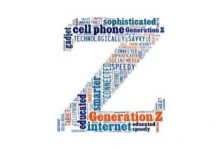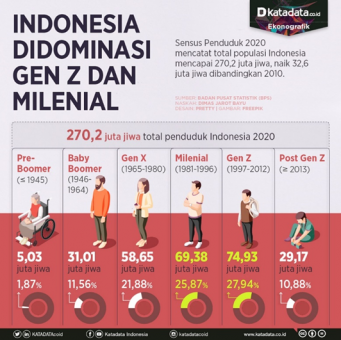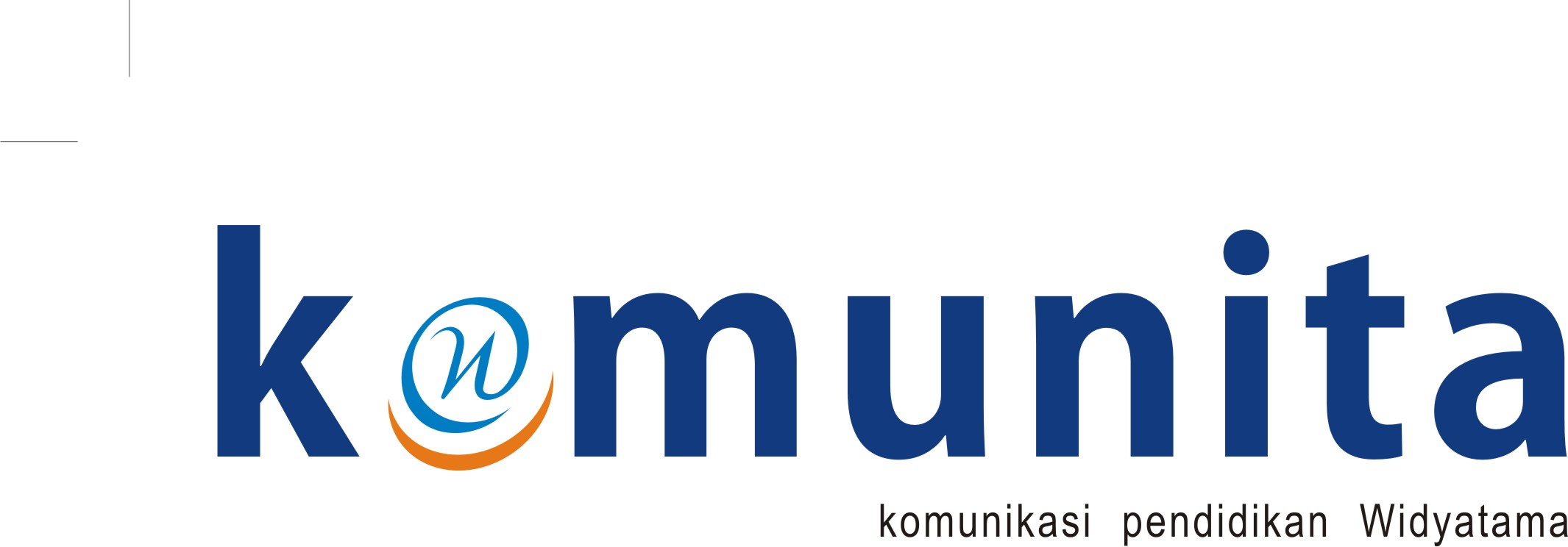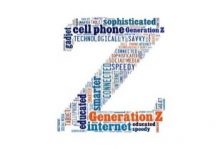INDONESIA DEMOGRAPHY BONUS & UNDERSTANDING INDONESIAN “GENERATION Z”
 The Demographic Bonus Theory is a theory that connects population dynamics with the economy. The less number of non-productive age population that must be borne by the productive age population will have an impact on better economic growth. The potential for the Demographic Bonus is reflected in the change in the Dependency Ratio (RK), which shows the number of children and the elderly (non-productive) compared to the working age (productive) population.
The Demographic Bonus Theory is a theory that connects population dynamics with the economy. The less number of non-productive age population that must be borne by the productive age population will have an impact on better economic growth. The potential for the Demographic Bonus is reflected in the change in the Dependency Ratio (RK), which shows the number of children and the elderly (non-productive) compared to the working age (productive) population.
Indonesia is in the Demographic Bonus period. The 2020 census shows that the composition of the Indonesian population mostly comes from Generation Z/Gen Z (generations born between 1997 and 2012) as much as 27.94% or 74.93 million. Meanwhile, the Millennial Generation, which is the motor of the movement of society, is currently less than 25.87% or 69.38 million of the total population of Indonesia.
 The existence of Gen Z plays an important role and influences the development of Indonesia today and in the future. Currently, some of them have entered the university level. This is certainly a challenge for higher education and universities which are the final terminal of education in building competitive human resources with competencies as needed. How universities understand and respond to the growth and development of Gen Z.
The existence of Gen Z plays an important role and influences the development of Indonesia today and in the future. Currently, some of them have entered the university level. This is certainly a challenge for higher education and universities which are the final terminal of education in building competitive human resources with competencies as needed. How universities understand and respond to the growth and development of Gen Z.
Recognizing and Understanding Gen Z
The United Nations Population Fund (UNFPA) formula states that a country can enjoy a Demographic Bonus when everyone enjoys good health, quality education, decent work, and the independence of young people (productive age) combined with good and appropriate state policies.
Optimization of the Demographic Bonus that will be played by Gen Z should not be underestimated. This means developing their potential from now on, through understanding Gen Z and their character, preparing an adequate education system and model, and opening up opportunities for them in the world of work and industry.
Referring to the 2020 national census Prof. Dr. Endang Komara, M. Si describes 6 (six) generations of Indonesians. First the veteran generation (born 1925-1946), then the second generation of baby boomers (born 1946-1960) around 21.88% of the 270 million Indonesian population), the third generation X (born 1960-1980) around 21.88 %, the fourth Generation Y or millennial generation (born in 1980-1995, aged 24-39 years) around 28.87% or 69.39 million people, and the fifth Generation Z (born 1995-2010, aged 8-23 years). ) there are 27.94% or 75.49 million people who are the largest generation today, and the last one is Generation Alpha (born 2010 – above). Related to this composition, in the future Gen Z will hold an important war if they are productive, capable and empowered human resources.
Gen Z is also known as the Net Generation or Internet Generation. They have similarities with Generation Y, but they are able to apply all activities at one time such as tweeting, using cellphones, browsing with PCs, and listening to music using headsets. Whatever is done mostly related to the virtual world. Since childhood, he has known advanced gadget technology which indirectly affects the human personality. Experts state that Gen Z has very different traits and characteristics from the previous generation. This generation is labeled as a boundary-less generation.
Based on research from 2003 to 2013, Bruce Tulgan and Rainmaker Thinking, Inc. in the article “Meet Generation Z: The Second Generation within The Giant Millennial Cohort” found five main characteristics of Gen Z that set it apart from previous generations. First, social media is a picture of the future of this generation. Gen Z is a generation that has never known a world that is completely alienated from the existence of other people. Social media proves that one can talk to anyone, anywhere, anytime. Social media is a bridge over alienation, because everyone can connect, communicate, and interact. Second, that Gen Z connectedness with other people is the most important thing. Third, skills gaps are possible in this generation. Therefore, efforts to transfer skills from previous generations through interpersonal communication, work culture, technical skills and critical thinking must be intensive. Fourth, Gen Z explores and connects with many people in various places virtually through an internet connection. This causes their experience of browsing geographically, to be limited. However, their ease of connecting with many people from various parts of the world causes Gen Z to have a global mindset. Fifth, Gen Z’s openness to accept various views and mindsets, causing them to easily accept diversity and different views on a matter. However, as a result, Gen Z becomes difficult to define itself. The self-identity that is formed often changes based on various things that influence them to think and behave towards something.
Ernest & Young’s (2015) study mentions that there are five main character differences between Gen Y and Gen Z. The study indicates that the background of the birth of Gen Z in a recession filled with turbulence, makes Gen Z grow into a generation that has self-awareness and independence. Gen Z is identified as a generation that is innovative and productive, as well as goal-oriented and has a realistic perspective. The survey also revealed the fact that 62% of Gen Z have a preference for starting their own business compared to working in an organization. This is due to Gen Z who have a high entrepreneurial spirit and tend to be ambitious, and are interested in finding solutions to the problems they face (Galih Painri, 2021).
Ryan Jenkins (2017) in an article entitled “Four Reasons Generation Z will be the Most Different Generation” states that Gen Z has different expectations, preferences, and work perspectives and is considered challenging for the organization. Gen Z characters are more diverse, global in nature, and have an influence on the culture and attitudes of most people. One thing that stands out, Gen Z is able to take advantage of technological changes in various aspects of their lives.
Meanwhile, the McKinsey (2018) study divides Gen Z behavior into four major components based on a strong foundation that Gen Z is a generation that seeks the truth. First, Gen Z as “the undefined ID”. They value the expression of each individual without giving a specific label, have a great openness to understand the uniqueness of each individual. Second, Gen Z as “the communaholic“. They are very inclusive and interested in engaging in various communities by leveraging advanced technology to expand the benefits they want to provide. Third, Gen Z as “the dialoguer”. They believe in the importance of communication in conflict resolution and change through dialogue. They are also open to the different thoughts of each individual and enjoy interacting with diverse individuals and groups. Fourth, Gen Z as “the realistic”. They tend to be more realistic and analytical in their decision-making, compared to previous generations. They are a generation that enjoys independence in the process of learning and seeking information, thus making them happy to be in control of the decisions they choose (Galih Painri, 2021).
However, Gen Z’s proximity to technology is not always an advantage. O’Connor, Becker, and Fewste (2018) research in the world of work entitled “Tolerance of Ambiguity at Work Predicts Leadership, Job Performance, and Creativity” found that younger workers show a lower capacity to deal with environmental ambiguity than older workers. The younger generation is accustomed to expressing a desire for things that are novelty, including in fields of work that are more challenging. They do not have the skills and self-confidence to manage the environmental uncertainty that often occurs so they tend to be more anxious.
Moreover, Gen Z was born and raised in overprotective upbringing in the midst of an uncertain world. Economic recession, digital transformation, invasions in several countries, natural disasters, and also disease outbreaks. This then causes in adulthood; Gen Z becomes less tolerant of environmental ambiguity because childhood is too protected. The American Psychological Association research cited by Media Literacy for Digital Natives: The Gen Z Perspective in Jakarta (2018) confirms these findings. The ability to manage stress and achieve a healthy lifestyle decreases with each generation. If this phenomenon continues, then in the future, Gen Z will be the most stressed generation in history. This condition is also related to the character of Gen Z who has no boundaries with other individuals, thus allowing them to be easily unstable when receiving exposure to information and conditions that quickly change and are completely random (Diyan Nur Rakhmah, 2021).
Educational Transformation
David Stillman and Jonah Stillman (2017) identify Gen Z characters in their book Gen Z at Work: How The Next Generation is Transforming the Workplace in the seven main Gen Z characters, namely: figital, fear of missing out (FOMO), hypercustomization, driven, realistic, Weconomist, and do it yourself (DIY) which of course provides input on how education needs to transform.
Figital Fictional. Generation Z exists in two worlds, namely the real and virtual worlds. Their personalities can be very different in the virtual world than in real life. In real life, you may look like a quiet child, but you can turn into a talkative child on social media.
This will be the basis for educators to determine the appropriate learning method used. Educators must also become more accustomed to using various learning facilities through digital technology, so that students can remain active and connected in learning in various learning conditions. Educators also need to be more open to the addition of new lexicon as media and learning tools. This can be in the form of visuals, videos, or even certain symbols that aim to improve the quality of communication between students and educators. Educators need to be more creative in finding and implementing figital solutions to enhance and spread a learning culture.
FOMO (Fear of Missing Out) characters. Generation Z is very up-to-date with everything that is happening around them. They can skip eating activities or even be willing to sleep for short hours, in order to always update the news on social media so they don’t miss everything they think is important. They have a high curiosity about various things, especially new things. Students are encouraged to know various things from information sources that are scattered and easily accessible today. In this case, education needs to be an open medium and accommodate various information needed by students not only on matters related to learning, but also life skills. Education needs to be able to curate any information that is indeed useful for students, and which is not. Teacher competence becomes very important in terms of accuracy.
Hypercustomized Character. Generation Z loves to make modifications to the things they have, such as motorbikes, laptops, and even the clothes they wear. This they do to show their identity by means of free expression.
Learners become accustomed to determining what needs they need and need to get. Their activity of surfing in cyberspace, is part of the way Gen Z fulfills their needs for themselves. In the context of education, giving students the freedom to determine how to learn is a necessity. Teachers are required to be able to personalize learning methods for each student, and provide students with more opportunities to find learning resources outside of school activities. The hypercustomization character causes students to become accustomed to criticizing many things around them, including providing input on the learning media that they have been using. The convenience of learning is paramount to Gen Z.
Driven Character. 72% of Gen Z feel competitive with people who do the same job, this proves that Gen Z is very motivated to be the best. Teachers need to encourage various media that are able to accommodate the diverse potential of students, without directing efforts to compare students with one another. Learners need to be more appreciated and make this practice an inseparable part of the reflective efforts of all parties in improving the quality of learning.
Realistic Character. Gen Z is a generation that has high aspirations, because they are aware that this is not something that cannot be done in this modern era. They can be whatever they want. But in fact, the freedom to dream that you have also still prioritizes the reality that might happen. They are also aware of their limitations, threats, and challenges in the outside world.
Weconomist character. Gen Z is familiar with the concept of ‘sharing economy’, which is a business concept that can provide access to resources owned by people or companies to be consumed or shared with users. Examples include applications such as Grab, Uber, and Gojek. Gen Z prefers group activities and is always connected to their peers. This character can be facilitated by the application of a learning approach that involves more than one student and conditions for collaborating with each other in completing the given learning tasks. Project-based learning approaches and the like will make students accustomed to working with groups and sharing information in them. Learners need to be closer to each other, to be able to learn from each other and provide input with their community (peer review), while still placing the teacher as a learning facilitator. Exploration activities of students also need to be turned on through various conversations/discussions between them.
DIY (Do It Yourself) Characters. Gen Z prefers to do things on their own. Gen Z’s typical lifestyle doesn’t need special schools to help with daily life, because they have Google and Youtube, which contain various things that can be directly imitated, such as looking for recipes to cook something, repairing electronics, even how to cut. hair they can do themselves.
Developing the characters above, teachers need to build learning with diverse approaches to encourage students’ creativity in many ways. The internet is more directed towards teachers as a source of information and inspiration to improve the life skills of students. The learning process must be independent, democratic, and open a wide area for the creation and discovery of new things in learning. Teachers need to create a learning climate that is able to build self-regulation in students. They also need to be more realistic about their life and future. Teachers also need to openly convey opportunities, challenges and obstacles that might make them need more effort to achieve their dreams. With these various efforts, education is expected to be able to provide input on rational things that Gen Z needs to do in their lives, now and in the future (Diyan Nur Rakhmah, 2021).
A study conducted by Forbes (2018), 77% of Gen Z feel stress at work caused by their perception of a highly competitive work environment, long working hours, and tight deadlines in completing work assignments. However, Gen Z has a strong work ethic in pursuing their careers and will strive to ensure that they contribute well to the organization (Bucovetchi, et al, 2019).
Meanwhile, a survey conducted by Kronos Incorporated (2019) found that 33% of Gen Z out of 3,400 respondents spread across various countries did not only value flexibility in the workplace as an important thing, but also an essential need. Interestingly, the survey found that Gen Z was not very confident about entering the workforce and the need to work long hours was a determining factor. Not only that, Gen Z worry about their ability to succeed in the world of work. At least, there are three emotional barriers experienced by Gen Z that create distrust of themselves professionally, including anxiety (34%), lack of motivation (20%), and low self-esteem (17%).
Gen Z is known as a creative and innovative generation. A survey conducted by Harris Poll (2020), illustrates that as many as 63% of Gen Z are interested in doing various creative things every day. This creativity is also shaped by Gen Z’s activity in the community and social media. This is relevant to a number of studies which identify that Gen Z is a generation that is closely related to technology (digital native). As they were born in the era of smart phones, grew up with the sophistication of computer technology, and have an openness to internet access that is easier than the previous generation. In fact, the survey explains that Gen Z in Indonesia in particular, occupies the highest rank in cellphone use, which is 8.5 hours per day (Kim, et al, 2020). Interestingly, even though Gen Z is known as the digital generation, 44% of Gen Z prefer to work with teams and co-workers face to face.
Basically, Gen Z is a unique generation and has tremendous potential inside. In Indonesia, in particular, Gen Z was born in a period of severe economic crisis and presents its own challenges for parents to raise this post-millennial generation in difficult times. Anxiety experienced by parents, without realizing it, also influences the formation of Gen Z’s character. Growing up in a recession era, Gen Z is given more protection, so they often feel anxious when things don’t go as they want.
The rise of Gen Z will also pose new challenges for management practices in organizations, especially for human resource management practices. Now, our task is how through higher education, how can Gen Z become more empowered in carrying out work productivity in strengthening their strengths and weaknesses. So that it has an optimal impact on the Demographic Bonus. Not a Demographic Disaster!!! Hopefully.
(From various sources, Rewriter: lili irahali – November 24, 2021)

